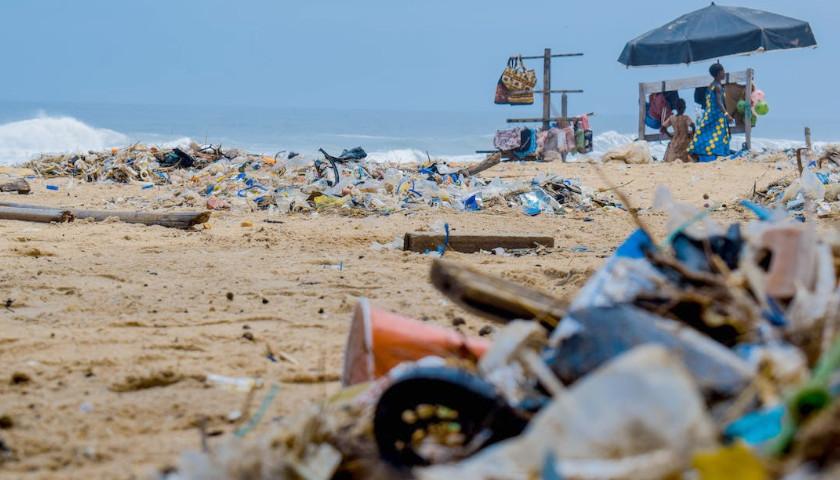by Andrew den Boggende
The problem of ocean pollution is not new. This past year, a survey conducted by the World Wildlife Fund found that more than three quarters of Americans are “increasingly frustrated that plastic waste generated in the United States ends up in oceans.” Today, the mass of plastic debris in the ocean continues to grow year over year, with only about 269,000 tons of the over 4 billion tons floating to the surface to be cleaned up (less than 0.006%.) In addition to the outrage, the survey revealed a desire for increased government intervention to fix the problem, but there is a far more effective way to decrease and prevent ocean pollution that is barely recognized amongst the public: private property rights.
Property rights, or the exclusive ability of someone to own, use, exchange, and/or gift property, have become one of the fundamental legal pillars of the modern world, yet they are mysteriously absent from the realm of oceans. No one truly owns, or is even allowed to purchase, property in the ocean. As a result, nobody has any incentive to preserve or cultivate the waters themselves.
What has ensued can only be described as a textbook case of the tragedy of the commons. The oceans, in short, have become a giant dumping ground. Not only has a lack of property rights led to the systematic defiling of the ocean, this arrangement has also prevented people from cultivating the ocean’s vast untapped potential. Since no one is allowed to protect or cultivate the ocean through owning property, ocean industry has been extremely limited, only consisting of extracting resources rather than multiplying them through activities like aquaculture. Even if anyone could choose to engage in aquaculture, they run the risk of being immediately deprived of their crop since there would be no way to prevent rival fishermen from taking the fish. Given this dilemma, it’s likely we’ve only tapped into a fraction of the immense value from the fish and mineral resources in the sea.
How could ocean property be defended from criminals? The beauty of property rights is that the owner is free to employ resources as they see fit to defend and maintain the property based on their evaluation, with the result being an efficient allocation of resources and the preservation of the ocean property itself. If an aquafarmer would like to pay for a boat to patrol their property to keep out marauders, they are free to do so. Furthermore, if someone is caught polluting their section of the ocean (by disposing waste, let’s say), a private property title would make it easier to prove a violation of rights and seek compensation without spreading law enforcement too thin, especially if the ocean property in question is within the territory of an existing country.
The increasing attention on property rights demonstrates just how important they are to solving the crisis at hand. Undoubtedly, it will take immense effort and cooperation between individuals and organizations. But with a little out-of-the-box thinking, we can end the era of oceanic destruction and foster a flourishing ocean unlike anything humanity has ever seen.
– —
Andrew den Boggende is an undergraduate student and researcher at Florida Southern College majoring in Economics and Art History & Museum Studies.





